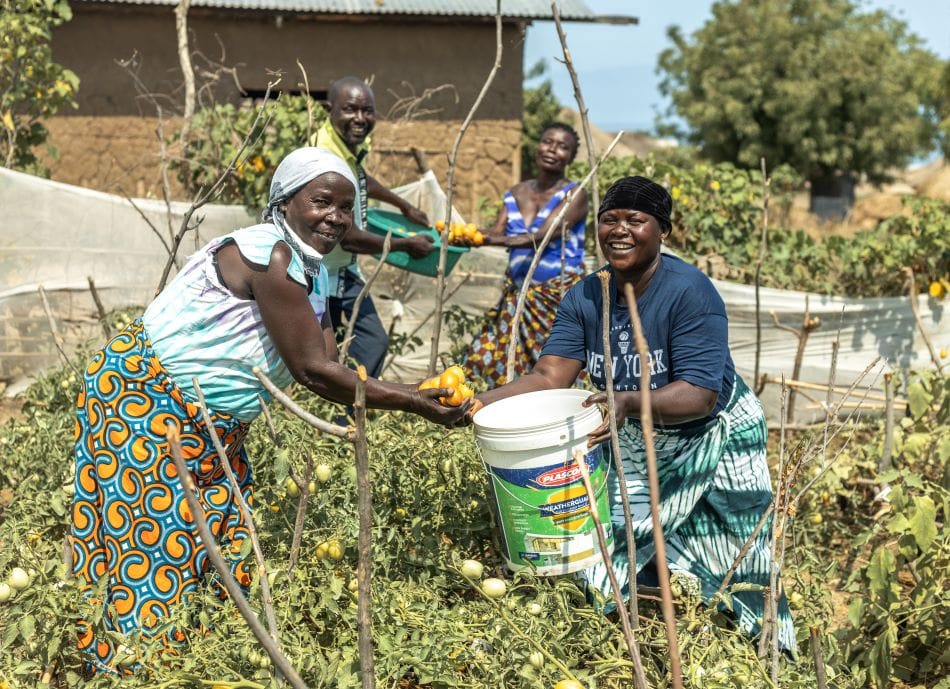Mozambique finds itself at a critical juncture in its economic development. New gas deposits found offshore could bring the country significant revenue through natural gas extraction and export. This discovery will add to the ongoing heavy investments from abroad aimed at extracting and exporting Mozambique’s coal and other precious metals.
The Government of Mozambique has pledged to work with extractive companies—Anadarko, Sasol, Rio Tinto, and others—to ensure that economic benefits flow to the local private sector and improve the overall business environment. The best-case scenario would be major growth in the number of local small and medium-sized enterprises (SMEs) that provide competitive goods and services to the extractives industry, including in sectors such as hospitality and logistics.
Mozambique is not alone. In African nations such as Ghana, Sierra Leone, and Tanzania, and elsewhere around the world, countries experiencing windfalls of foreign investment in natural resource extraction wrestle with how to harness their newly discovered natural resources to benefit the local economy.

As Mozambique weighs policies and laws that require extractive companies to use local supplies and services, or “local content,” the billion-dollar question is: What is the best mix of protections and incentives to improve the business environment, facilitate local supply linkages, and train the local workforce to meet industry standards?
Other Countries' Approaches: A Mixed Bag
Though many countries have produced local content laws, policies, and regulations, their results have been inconclusive. There is little evidence that these rules have expanded local product supply sectors, generated sustainable employment, or built the capacity of local enterprises to better compete in the global marketplace.
What is clear is that local content initiatives must be approached cautiously so as to not further distort the market through regrettable policies.
In 2010, Nigeria approved the Nigeria Oil and Gas Industry Content Development Act to stimulate local firm participation in the oil and gas industry and improve the coordination, monitoring, and implementation of Nigerian content support. The act created the Nigerian Content Development and Monitoring Board to oversee implementation of the Act and a Nigerian Content Development Fund funded by 1 percent of every contract awarded to an operator, contractor, or subcontractor. The act prescribes a target amount and percentage of business to be awarded to Nigerian firms for each category of good and service. It defines “Nigerian content” by value added or created in the Nigerian economy, but does not detail what is considered Nigerian in terms of firm ownership.
Nigeria’s experience has been mixed. The act has improved the sharing of procurement opportunities, revenues, and information with local suppliers, but the detailed targets by good and service sector have created harmful distortions in the market, because most local suppliers are unable to achieve the scale and quality demanded by large purchasers. Some of these extractive-related companies have resorted to awarding local contracts to meet their targets and pacify local firms’ expectations, but then returned to their old supply chains to import the overwhelming majority of the goods and services they need.
Ghana has a well-established history of gold mining but its oil production is new, having started in 2010. Ghana acted early to develop a policy framework to encourage local content and to use this new sector to stimulate long-term development in the local private sector. The country wisely began by developing a Local Content and Local Participation in Petroleum Activities Policy Framework, which defined “local” as the use of Ghanaian expertise, goods and services, and businesses and financing in the petroleum industry value chain.
Rather than starting immediately with local content laws and regulations, Ghana began the process with a policy framework used to define the broad approach, goals, and vision, and to build consensus across the public and private sectors. This policy has been instrumental in catalyzing oil and mining firms such as Tullow Oil to invest in local supply chain development through the creation of an Economic Development Center, understanding that the government is likely to continue refining its local-content requirements.
Angola’s local-content framework is spread across nine separate pieces of legislation enacted largely between 2002 and 2012, and is accordingly unclear. Of note is the requirement that the government have full or partial ownership of key enterprises in the oil and gas sector, as embodied by Sonangol, the national petroleum and gas producer.
Though there is a strict requirement that at least 70 percent of extractive employees are Angolan, this has not led to a broad transfer of skills to local Angolans, nor has Angola’s wealth from oil exports stimulated the private sector. Angola ranks an abysmal 172 out of 185 in the World Bank’s Doing Business business regulations index.
No reliable data exist to gauge the success of the activities supported by Angola’s Fund for Training and Development of Human Resources (one of the nine pieces of legislation referenced above), nor on the levels of enforcement of existing local-content requirements.
South Africa’s experience is unique given its history with apartheid. The country established the Black Economic Empowerment framework (BEE and, later, Broad-based Black Economic Empowerment, or BBEE) to address inequality created during apartheid. The program prescribes specific measures and targets by sector, covering preferences in procurement, employment, management, and ownership. BBEE is now highly decentralized and sector-specific. Recently, the government passed guidelines on how to calculate local content using a mathematical equation.

While South Africa’s policy model is thorough, it has resulted in some adverse consequences. The complex BBEE codes have raised the cost of doing business and, in some cases, halted firms’ investments without yielding sustainable private sector development and enterprise growth. This failure can be attributed to mandating firm purchasing behavior rather than finding a more balanced mix of regulation, support to improve the business enabling environment, and incentives to catalyze local procurement without sacrificing quality and cost.
Mozambique's Options
In considering its policy options for local content, the Government of Mozambique has the difficult task of protecting itself and its economy while creating incentives for more local investment. A strong law or regulation could satisfy the political demands from local entrepreneurs who want greater set-asides from the large corporations; it could also drive up the costs of doing business and protect uncompetitive business practices. Inaction is not the answer. Failing to harness the opportunities associated with the thriving extractive industry for the benefit of the local supply chains, workforce, and economy would be a big mistake.
The solution must get the mix just right. Here are a few suggestions:
- Continue to invest heavily in business enabling environment reforms that make it easier for SMEs to do business and improve their competitiveness in Mozambique.
- Establish a reliable and credible consultation platform between public sector, private sector, and civil society actors to facilitate dialogue and coordinated development interventions around these new investments.
- Form a technical working group from the public and private sectors to begin drafting a policy that will address the issues facing local content development in Mozambique.
- Collaborate with private extractive industry companies to disseminate information on industry standards, health and environmental safety standards, and supplier qualifications to allow local SMEs to improve their business practices to meet procurement requirements.
At the same time, large extractive companies must be pushed to disclose procurement plans, invest in local supplier development, and use their market power to raise the sophistication of local SMEs. Such a process is not easily achieved and requires collaboration across public, private, and civil society.
For Mozambique, learning from its neighbors’ experiences and critically assessing the options against its own constraints and pressures would signal encouraging progress in a country on the brink of economic transformation.





